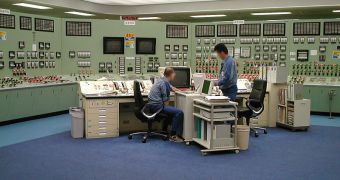The nuclear disaster from Fukushima comes in the public opinion's attention once again, as Japanese experts forecast that the entire clean-up process will take more than 30 years to be completed.
The greatest challenge authorities are facing is to remove melted fuel rods and decommission the plant.
Once Tokyo Electric Power (Tepco), the facility's operator, will be able to achieve the safe state known as cold shutdown, the authorities will be able to start the fuel removal process.
The entire process might put in danger the wellbeing of people who work in hazardous conditions, since the amount of radiations coming from the power plant has decreased, but it is still noticeable.
The officials who handle this matter tried to adopt a new measure to prevent the contamination of towns near Fukushima.
They intended to build facilities to temporarily store the considerable quantities of radioactive debris which were released in the catastrophic event.
Such an ambitious task will take almost 3 years to be accomplished, while in the mean time local communities are still exposed to the contaminated waste.
In order to deal with this problem, the authorities must start eliminating a significant quantity of soil, which has already been exposed to radiations.
After taking care of 4 cm of topsoil considered dangerous for public health, out of the entire region, the Fukushima prefecture would have to deal with 3m tonnes of trash. That would be enough waste to fill 20 football fields.
The Japanese government is aware of the costs that this operation will imply. At this point in time, they are talking about 220bn yen (£1.75bn) to cover the price of the decontamination work.
Next year, the entire process will require other 460bn yen. While stating the cost of the entire clean-up operation, representatives from the Japanese administration say it might reach 1.5tn yen.
Volunteers and non-profit organizations also joined the government's efforts to fix this situation, but, despite their enthusiasm, they didn't manage to provide an effective solution to the matter of toxic waste.
While examining the causes of the accident, Japanese officials say they are still unable to draw pertinent conclusions and that they will start consulting foreign experts next year.

 14 DAY TRIAL //
14 DAY TRIAL //